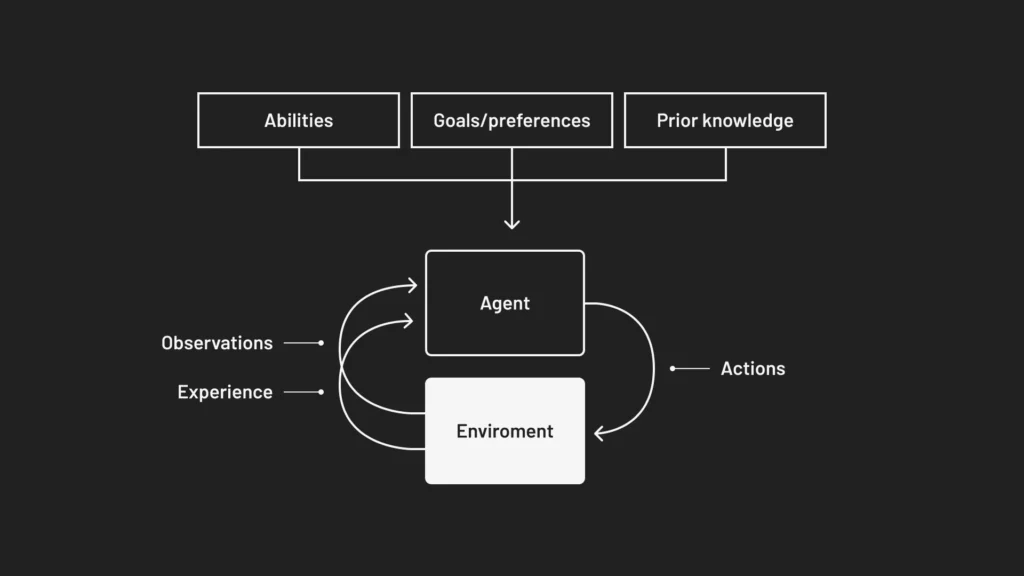Rise of AI Agents: Transforming Daily Life in 2025
The year 2025 marks a pivotal moment in the evolution of artificial intelligence with the rise of AI agents, autonomous systems designed to perform complex tasks with minimal human intervention. These agents are revolutionizing how we interact with technology, manage our daily lives, and make decisions. From financial planning to health monitoring, AI agents are becoming indispensable in both personal and professional spheres. In this article, we explore the key developments, applications, and implications of AI agents in 2025.
What Are AI Agents?
AI agents are advanced software programs that operate autonomously to achieve specific goals on behalf of users. They combine natural language processing, machine learning, and decision-making algorithms to perform tasks like planning, scheduling, and data analysis.

Key Features of AI Agents in 2025
- Contextual Understanding
- AI agents in 2025 can comprehend context and nuances, enabling more human-like interactions. This is achieved through advancements in Natural Language Processing (NLP) and emotion detection technologies.
- Proactive Decision-Making
- Equipped with predictive analytics, AI agents can anticipate user needs and make proactive decisions. For instance, they can suggest investment opportunities based on market trends or remind users to stay hydrated by analyzing health data from wearables.
- Interconnectivity
- AI agents are designed to integrate seamlessly with various devices, including smartphones, smart homes, and IoT ecosystems. This interconnectivity ensures users have access to personalized services anytime, anywhere.
- Ethical and Secure Design
- In response to growing concerns about privacy, developers are embedding ethical principles into AI agents. Secure data handling and transparent decision-making processes are now standard features.
Real-World Applications of AI Agents
- Personal Finance Management
- AI agents are transforming the way individuals manage their finances. By analyzing spending patterns, these agents provide tailored budgeting advice, track investments, and suggest cost-saving strategies. Platforms like robo-advisors are integrating AI agents to deliver personalized financial plans.
- Healthcare Assistance
- Virtual health assistants are one of the most impactful applications of AI agents. These systems monitor vitals, schedule medical checkups, and provide health tips. For example, they can detect irregularities in heart rate through wearable devices and alert healthcare providers in real time.
- Travel and Lifestyle Planning
- AI agents excel in organizing travel itineraries by booking flights, hotels, and even suggesting activities based on user preferences. They also help in day-to-day lifestyle management, such as meal planning and fitness tracking.
- Education and Learning
- Personalized education is another area where AI agents shine. Students benefit from tailored study plans, real-time feedback, and interactive learning experiences. AI tutors can adjust teaching methods based on the learner’s progress and comprehension level.
The Technology Behind AI Agents
- Reinforcement Learning
- AI agents utilize reinforcement learning to make decisions by evaluating rewards and penalties in real time. This enables them to refine their behavior over time.
- Edge AI
- Edge computing allows AI agents to process data locally, reducing latency and improving performance. This is crucial for applications requiring instant responses, such as autonomous vehicles and real-time health monitoring.
- Federated Learning
- To address privacy concerns, AI agents leverage federated learning. This technique ensures data is processed on local devices, with only aggregated insights shared across networks.
Challenges and Ethical Considerations
- Privacy and Security
- The extensive data collection by AI agents raises significant privacy concerns. Ensuring robust data encryption and adhering to ethical guidelines are critical to maintaining user trust.
- Dependence on AI
- As AI agents become more integrated into daily life, there is a risk of over-dependence, which could diminish critical thinking and decision-making skills among users.
- Bias and Fairness
- AI agents must be designed to avoid biases that could lead to unfair or discriminatory outcomes. Developers are focusing on creating transparent and inclusive algorithms.
